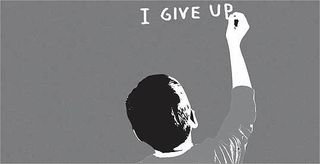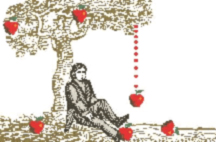In past articles, we’ve highlighted the works of both Dr. Angela Duckworth, a psychologist at the University of Pennsylvania; and Dr. Carol Dweck, a psychologist from Stanford University. These women are two of the most influencial leaders on the topic of grit. Both professionals have a passion for researching what, in fact, we should be measuring with regard to propensity for success.
Johan Lehrer puts it this way in his recent article in the Boston Globe:
“One of the main obstacles for scientists trying to document the influence of personality traits on achievement was that the standard definition of traits - attributes such as conscientiousness and extroversion - was rather vague.
Duckworth began wondering if more narrowly defined traits might prove to be more predictive. She began by focusing on aspects of conscientiousness that have to do with ‘long-term stamina,’ such as maintaining a consistent set of interests, and downplayed aspects of the trait related to short-term self-control, such as staying on a diet. In other words, a gritty person might occasionally eat too much chocolate cake, but they won’t change careers every year. ‘Grit is very much about the big picture,’ Duckworth says. ‘It’s about picking a specific goal off in the distant future and not swerving from it.’"
In essence, Duckworth is suggesting that, rather than IQ level, what we should be measuring is a person’s ability to narrow and maintain focus on a particular goal. Research confirms that this is a better predictor of a person’s potential than their intelligence and well-rounded background.
If you’re a hiring manager, think about how you interview candidates... Would this be a trait that you could measure during an interview by changing the types of questions you ask? If so, you’d probably be more successful at predicting your prospective employee's potential in your organization.
If you’re in a coaching role, you can also take advantage of the research in this area:
“While Duckworth and others are quick to point out that there is no secret recipe for increasing grit - 'We’ve only started to study this, so it’s too soon to begin planning interventions,' she cautions - there’s a growing consensus on what successful interventions might look like.
One of the most important elements is teaching kids that talent takes time to develop, and requires continuous effort. Dweck refers to this as a 'growth mindset.' She compares this view with the 'fixed mindset,' the belief that achievement results from abilities we are born with. 'A child with the fixed mindset is much more likely to give up when they encounter a challenging obstacle, like algebra, since they assume that they’re just not up to the task,' says Dweck.
Interestingly, it also appears that praising children for their intelligence can make them less likely to persist in the face of challenges, a crucial element of grit. For much of the last decade, Dweck and her colleagues have tracked hundreds of fifth-graders in 12 different New York City schools. The children were randomly assigned to two groups, both of which took an age-appropriate version of the IQ test. After taking the test, one group was praised for their intelligence - 'You must be smart at this,' the researcher said - while the other group was praised for their effort and told they 'must have worked really hard.'
Dweck then gave the same fifth-graders another test. This test was designed to be extremely difficult - it was an intelligence test for eighth-graders - but Dweck wanted to see how they would respond to the challenge. The students who were initially praised for their effort worked hard at figuring out the puzzles. Kids praised for their smarts, on the other hand, quickly became discouraged.
The final round of intelligence tests was the same difficulty level as the initial test. The students who had been praised for their effort raised their score, on average, by 30 percent. This result was even more impressive when compared to the students who had been praised for their intelligence: their scores on the final test dropped by nearly 20 percent. A big part of success, Dweck says, stems from our beliefs about what leads to success."
Could this change your perspective on how you coach those on your team? It is so natural to praise those we coach for their natural abilities. While this feels natural and right, the research shows it is counterproductive.
It may be better to just let the natural talents speak for themselves, and seek to praise someone for living out their values and displaying positive virtues. Grit is one of these virtues, but there may be more. It will be interesting to see what the research unveils in the future...












